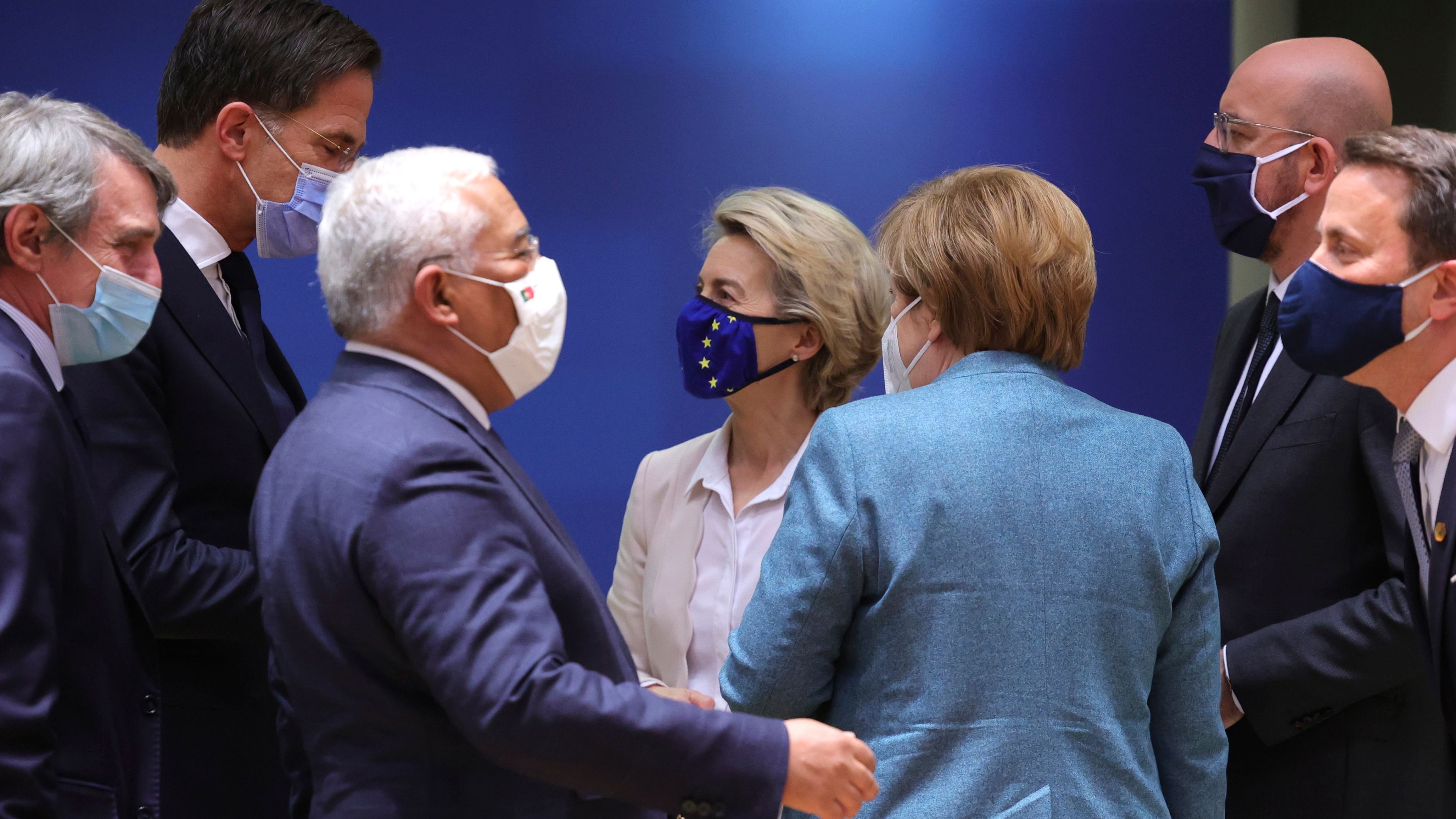Why everyone’s talking about the EU’s plan for a no-deal Brexit
Bloc publishes proposals as negotiations remain deadlocked ahead of Sunday deadline

A free daily email with the biggest news stories of the day – and the best features from TheWeek.com
You are now subscribed
Your newsletter sign-up was successful
The EU has published its no-deal planning as negotiators head into the final 48-hour window before the new deadline for reaching an agreement.
EU Commission President Ursula von der Leyen shared the “targeted contingency measures” yesterday, after failing to break to the deadlock during one-on-one crisis talks with Boris Johnson over dinner on Wednesday.
Negotiations between the two sides “are still ongoing but the end of the transition is near”, von der Leyen tweeted. “There is no guarantee that if and when an agreement is found it can enter into force on time... Today we present contingency measures.”
The Week
Escape your echo chamber. Get the facts behind the news, plus analysis from multiple perspectives.

Sign up for The Week's Free Newsletters
From our morning news briefing to a weekly Good News Newsletter, get the best of The Week delivered directly to your inbox.
From our morning news briefing to a weekly Good News Newsletter, get the best of The Week delivered directly to your inbox.
Fail to prepare…
The bloc’s plan includes legislation to “prevent a cliff-edge scenario in case no EU-UK trade deal is agreed by the end of the Brexit transition period”, Politico reports.
According to the European Commission planning document, the measures will “cater for the period during which there is no agreement in place. If no agreement enters into application, they will end after a fixed period.”
The measures are designed to mitigate “significant disruptions”, ensuring “basic reciprocal air and road connectivity between the EU and the UK, as well as allowing for the possibility of reciprocal fishing access by EU and UK vessels to each other’s waters”, the Commission adds.
A free daily email with the biggest news stories of the day – and the best features from TheWeek.com
A spokesperson for Boris Johnson said Downing Street would “look closely” at the proposals, but suggested that some elements of the plan might be rejected - including the bloc’s suggestion for maintaining fishing rights.
“As we’ve said throughout the negotiations, once we leave the end of the transition period, we will take back control of our waters,” the spokesperson said.
“We would never accept arrangements and access to UK fishing waters which are incompatible with our status as an independent coastal state.”
Prepare to fail
EU countries “have been preparing for a no-deal Brexit since 2018”, the BBC reports.
The resulting proposals include “extending the deadline to reach an agreement on fishing until the end of December 2021”, the broadcaster continues.
This extension would mean that EU fishing vessels would “continue fishing in British waters and vice-versa for another year, or until an agreement is reached”.
The EU planning document says the measure is needed “to guarantee the sustainability of fisheries and in light of the importance of fisheries for the economic livelihood of many communities”.
But Eurosceptics in the UK remain unconvinced. Tory MP David Jones, a senior member of the hard-line European Research Group, told Sky News: “They seem to want access to our fish without giving anything in return. That is not a deal, that is appropriation.”
The EU’s plan also includes proposals for new regulations to “ensure the provision of certain air services between the UK and the EU” for six months, and a new law to ensure “various safety certificates for products can continue to be used in EU aircraft without disruption”, to avoid the grounding of planes.
Amid growing concerns about potential tailbacks on UK motorways in early January, Brussels has also proposed legislation aimed at minimising disruptions to road freight and road passenger transport.
Like the other proposed measures, however, the roads regulation offer comes with the proviso that “the UK assures the same” to the EU.
Joe Evans is the world news editor at TheWeek.co.uk. He joined the team in 2019 and held roles including deputy news editor and acting news editor before moving into his current position in early 2021. He is a regular panellist on The Week Unwrapped podcast, discussing politics and foreign affairs.
Before joining The Week, he worked as a freelance journalist covering the UK and Ireland for German newspapers and magazines. A series of features on Brexit and the Irish border got him nominated for the Hostwriter Prize in 2019. Prior to settling down in London, he lived and worked in Cambodia, where he ran communications for a non-governmental organisation and worked as a journalist covering Southeast Asia. He has a master’s degree in journalism from City, University of London, and before that studied English Literature at the University of Manchester.